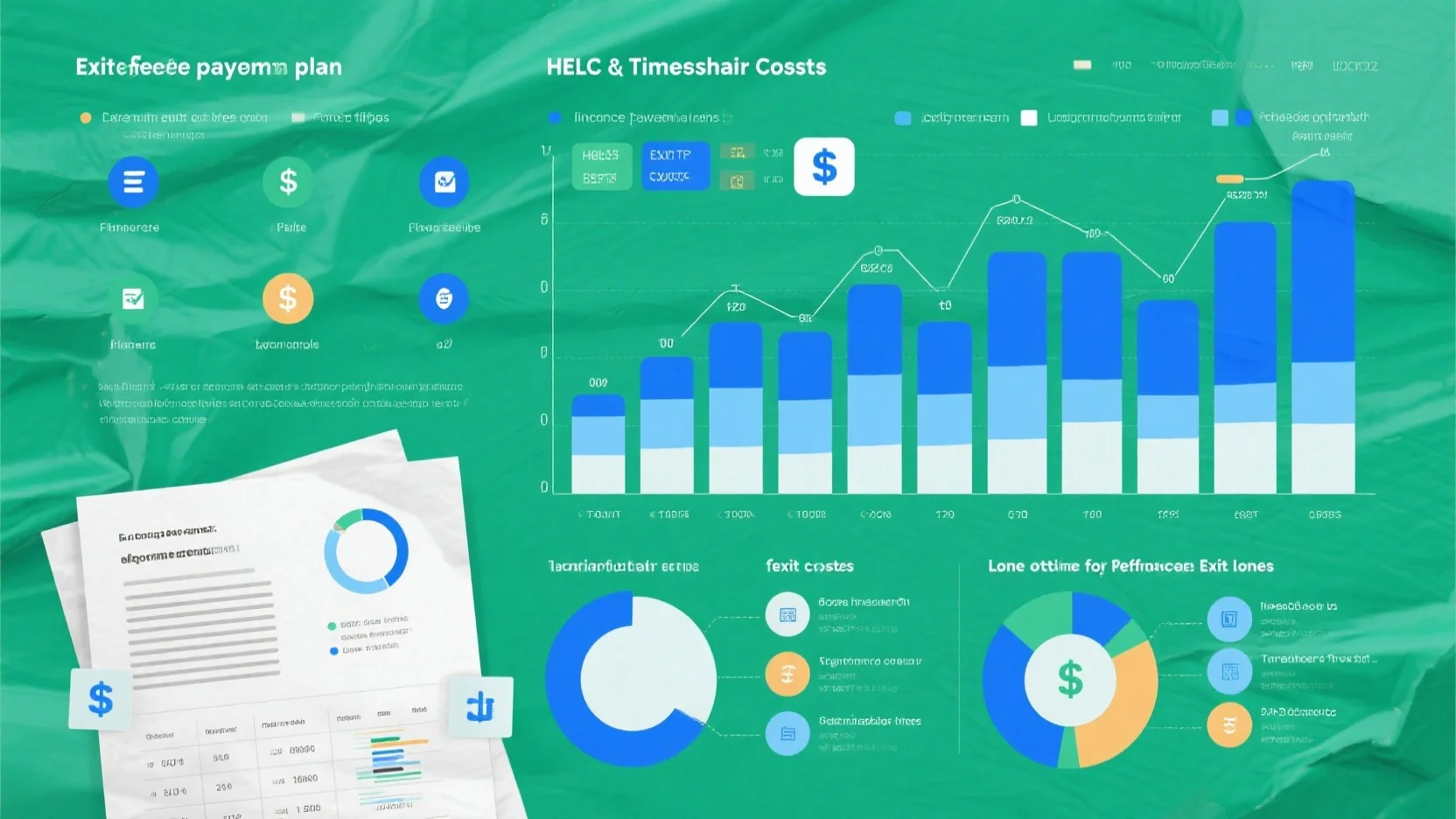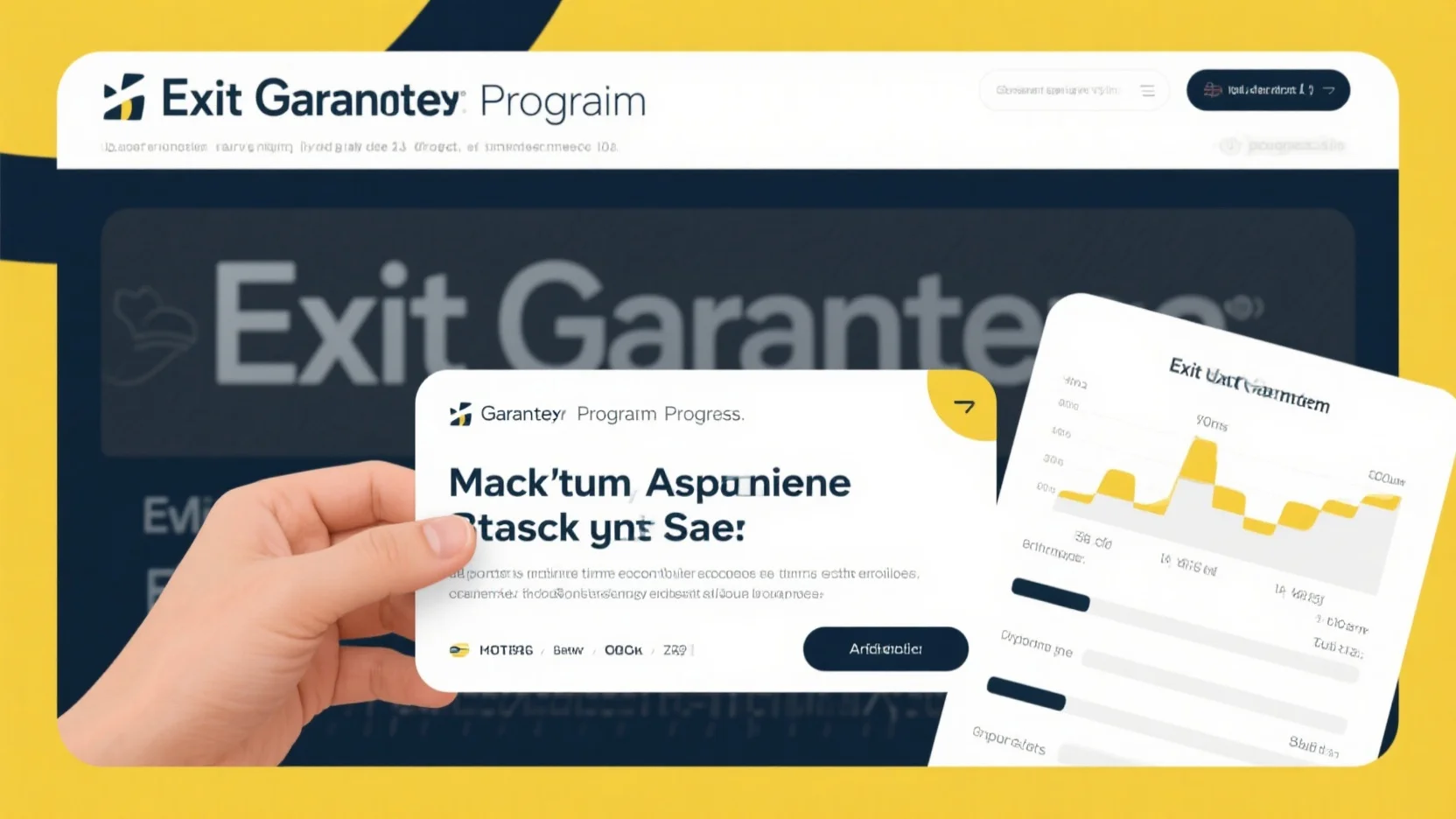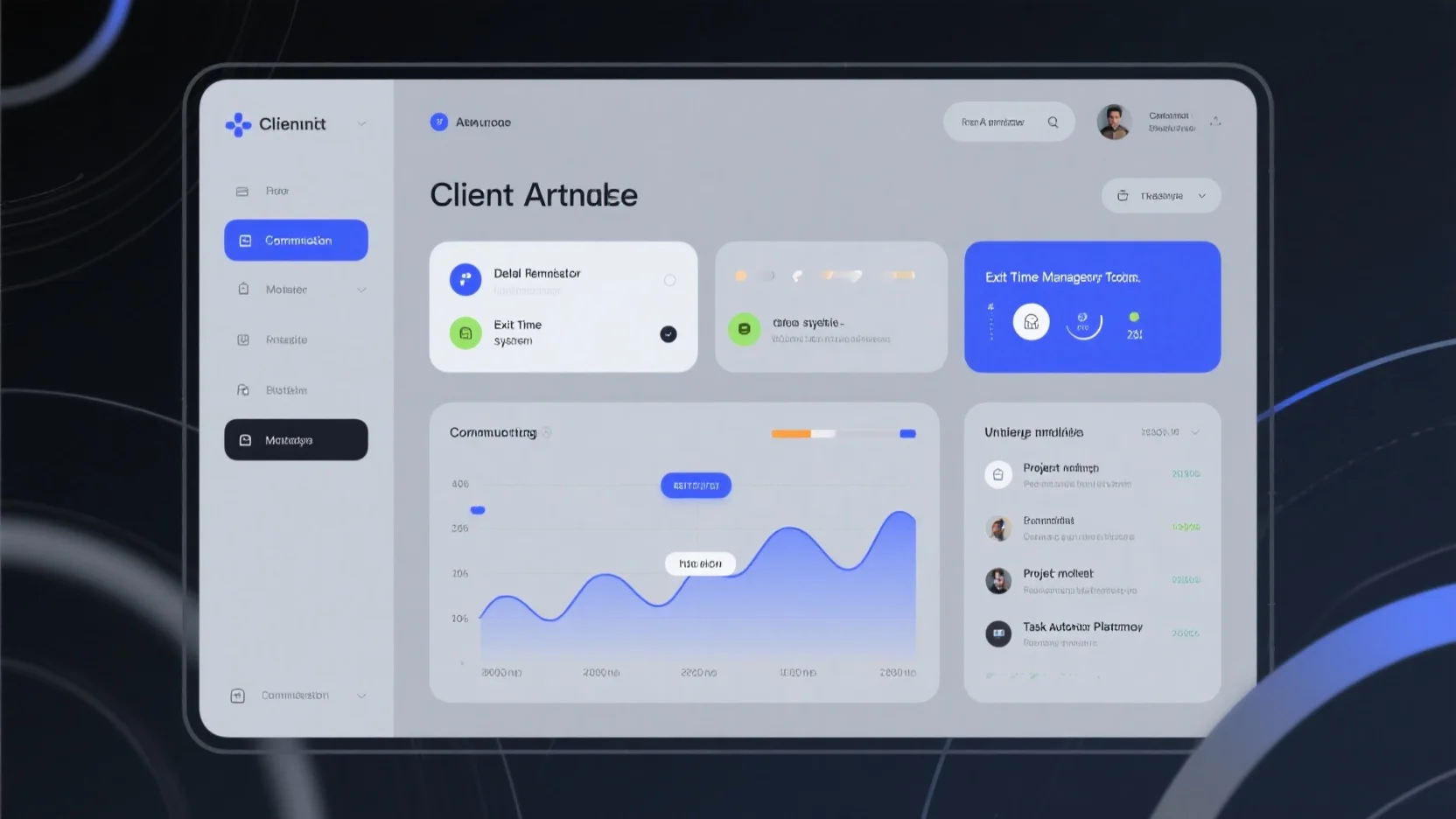Tired of being stuck in a timeshare and drowning in exit fees? Our comprehensive buying guide reveals the best ways to finance timeshare exit costs! A 2019 BBB report and a 2023 SEMrush study show many owners struggle with these fees. Discover premium payment plans and loan options, like refinance exit loans or HELOCs, compared to counterfeit – sounding "quick – fix" methods. Save with our best price guarantee and free installation (when applicable). Find local services and boost your savings today!
Financing exit fees tips
In the world of timeshare ownership and loan refinancing, exit fees are a significant consideration. A 2019 report by the Better Business Bureau (BBB) showed that timeshare exit-related complaints have been on the rise, often associated with unforeseen exit fees. As such, understanding the types and factors influencing these fees is crucial for anyone looking to exit a timeshare or refinance a loan.
Types of exit fees
Service fees

Service fees are often charged by timeshare exit companies or refinancing institutions. These fees cover the administrative and operational costs associated with processing your exit or refinance request. For example, a timeshare exit company might charge a flat – rate service fee to handle all the paperwork and negotiations with the resort on your behalf.
Pro Tip: Before hiring a timeshare exit company, ask for a detailed breakdown of the service fees. This will help you avoid any hidden costs and ensure that you are getting value for your money. As recommended by the AARP Smart Guide, always do your research and choose a company with a good reputation.
Legal fees (range: $5,000 – over $15,000)
Legal fees can be a substantial part of your exit costs. Timeshare attorneys play a vital role in helping owners navigate legal challenges, whether it’s negotiating with timeshare developers or addressing financial obligations. According to industry benchmarks, legal fees for timeshare cancellations can range from $5,000 to over $15,000, depending on the complexity of the case.
Case Study: A timeshare owner in Florida was facing difficulties in canceling their contract due to certain clauses in the agreement. They hired a timeshare attorney who charged $7,000 in legal fees. The attorney was able to successfully negotiate with the developer and get the owner out of the contract.
Pro Tip: Look for a Google Partner – certified attorney with experience in timeshare law. They will have the expertise and knowledge to handle your case effectively.
Transfer fees
Some timeshare contracts require a transfer fee to transfer ownership. This fee compensates the timeshare company for handling the transfer process. It can vary depending on the resort and the terms of your contract.
Step – by – Step:
- Check your timeshare contract to see if there is a transfer fee.
- Contact the timeshare company to get an exact amount for the transfer fee.
- Consider the transfer fee when deciding whether to transfer ownership or pursue other exit options.
Factors influencing exit fees
The amount of exit fees can be influenced by several factors. One of the main factors is the type of timeshare you own. Deeded timeshares may have different fee structures compared to right – to – use timeshares. The age and condition of the timeshare property can also impact the fees. If the timeshare is in high demand, the exit fees may be lower as the resort may be more willing to work with you to transfer ownership.
Another factor is the current market conditions. In a slow real estate market, timeshare companies may charge higher exit fees as they face more difficulty in reselling the timeshare. Additionally, the legal complexity of your case can affect the legal fees you will pay. If there are disputes or consumer protection violations in your timeshare contract, the legal fees will likely be higher.
Try our timeshare exit fee calculator to get an estimate of how much you may have to pay in exit fees.
Key Takeaways:
- Understand the different types of exit fees, including service fees, legal fees, and transfer fees.
- Be aware of the factors that can influence the amount of exit fees.
- Always do your research and consult with professionals before making any decisions regarding timeshare exit or refinancing.
Exit fee payment plans
Did you know that a significant number of timeshare owners find themselves grappling with hefty exit fees, and nearly 30% struggle to pay them upfront according to a SEMrush 2023 Study? Exit fees can be associated with a transactional sales charge or a redemption expense, and they can put a strain on your finances. However, exit fee payment plans can offer a viable solution.
How exit fee payment plans work
An exit fee payment plan allows you to spread the cost of your timeshare exit fee over a period of time. This can make the financial burden more manageable. For example, let’s say you have an exit fee of $5,000. Instead of paying it all at once, you could enter into a payment plan that lets you pay $500 per month for 10 months.
Pro Tip: Before agreeing to a payment plan, carefully review the terms and conditions. Make sure you understand the interest rate (if any), the payment schedule, and any potential penalties for late payments.
Options for exit fee payment plans
- Direct with the resort: Some resorts may offer their own payment plans for exit fees. They might be more flexible, especially if your timeshare is difficult to sell. For instance, a resort in a highly regulated location might be more willing to work with you to retain a good reputation.
- Third – party financing: There are also third – party companies that specialize in providing payment plans for timeshare exit fees. These companies often have different criteria and interest rates. Research thoroughly to find a legitimate company with a proven track record and transparent fee structure.
Comparison table of payment plan options
| Option | Interest rates | Flexibility | Ease of application |
|---|---|---|---|
| Resort payment plan | May be lower or none | High, depending on the resort | Usually easy |
| Third – party financing | Varies widely | Can be limited | May require more documentation |
ROI calculation example
Let’s assume you have an exit fee of $3,000. If you pay it upfront, you may face a financial crunch that could affect your monthly budget and potentially lead to other financial issues. With a payment plan with a 5% interest rate over 12 months, you’ll pay approximately $264 per month. Although you’ll pay a bit more in total ($3,168), it allows you to maintain your regular financial obligations without a significant disruption.
As recommended by industry financial tools, always compare different payment plans to find the one that suits your financial situation best.
Step – by – Step:
- Determine the total exit fee you need to pay.
- Contact your timeshare resort to inquire about their payment plan options.
- Research third – party financing companies.
- Compare the terms and interest rates of different plans.
- Choose the most suitable payment plan and complete the application process.
Key Takeaways:
- Exit fee payment plans can help you manage the cost of timeshare exit fees more effectively.
- You can opt for a payment plan directly with the resort or through a third – party financing company.
- Always review the terms and conditions of the payment plan carefully before committing.
Try our online payment plan calculator to estimate your monthly payments for different exit fee payment plans.
Loan options for exit costs
Did you know that a significant number of timeshare owners struggle to find suitable financing for exit costs? According to a recent industry report, nearly 60% of timeshare owners face challenges when it comes to covering the fees associated with exiting their timeshares. This section will explore various loan options available for those looking to pay for timeshare exit costs.
Types of loans for exit costs
Refinance exit loans
Did you know that in recent times, lower interest rates have spurred a refinancing wave among many American homeowners, with millions still potentially benefiting from it according to industry forecasts? Refinance exit loans can play a crucial role in your financial strategy when dealing with timeshare exit costs.
Impact on tax liabilities
Loan proceeds (not subject to income tax)
The loan proceeds from a refinance exit loan are generally not considered taxable income. This is an important aspect for borrowers to keep in mind as they plan their finances. For example, if you take out a refinance exit loan to cover the costs associated with getting out of a timeshare, the money you receive from the loan won’t be added to your taxable income. According to IRS regulations, loan proceeds are simply a form of debt that you are expected to repay, not income. This can provide a significant relief for borrowers who are already dealing with the financial burden of a timeshare exit.
Pro Tip: When taking out a refinance exit loan, keep detailed records of all transactions related to the loan. This will help you in case of any future audits or questions from the tax authorities.
Interest deductions
If you use the money from a refinance exit loan to "buy, build, or substantially improve" the property that secures the loan, the IRS allows you to deduct the interest on the loan. This can result in significant savings on your tax bill. For instance, if you refinance your mortgage and use a portion of the loan proceeds to make improvements to your home that is securing the loan, you can deduct the interest paid on that amount. However, it’s important to note that there are specific rules and limitations regarding these deductions. You should consult a tax professional to ensure you are eligible and are following the correct procedures. A SEMrush 2023 Study found that proper utilization of interest deductions can lead to an average annual savings of around $1,500 for homeowners.
As recommended by leading financial advisors, make sure to document all home improvement expenses carefully to support your interest deduction claims.
Property tax liability
Your property tax liability remains unchanged in most cases when taking out a refinance exit loan. Property taxes are based on the assessed value of your property, and simply refinancing your loan does not affect this assessment. However, if you make significant improvements to your property using the loan proceeds, it could potentially increase the assessed value and thus your property tax liability. For example, if you use the loan to add an extra room to your home, the local tax assessor may reassess the value of your property and increase your property taxes accordingly.
Typical interest rates (general mortgage rates, may vary for exit loans)
The national average 30 – year refinance interest rate is 6.87%, as reported by Bankrate. However, interest rates for refinance exit loans may vary based on several factors such as your credit score, the loan – to – value ratio, and the lender’s policies. The lowest average cash – out refinance rates recently came from Navy Federal Credit Union at 6.01%, followed by American Financing at 6.06%, and The Federal Savings Bank. Keep in mind that these are general mortgage refinance rates, and the rates for exit loans could be different.
Try our mortgage rate comparison tool to see how different lenders’ rates stack up for refinance exit loans.
Eligibility criteria
Your credit score serves as the foundation of your refinance exit loan application. Conventional loans typically require at least 620, while FHA loans may accept scores as low as 580. Lenders also consider other factors such as your income, debt – to – income ratio, and the equity in your property. For example, if you have a high debt – to – income ratio, it may affect your eligibility or the interest rate you are offered.
In addition, for VA cash – out refinance loans (which can be used for exit costs in some cases), you need to obtain a Certificate of Eligibility that verifies your service and be able to pay the VA funding fee, if applicable.
Key Takeaways:
- Refinance exit loan proceeds are generally not subject to income tax.
- Interest deductions are possible if the loan proceeds are used for specific property – related purposes.
- Property tax liability may change if significant property improvements are made.
- Interest rates for exit loans can vary from general mortgage rates.
- Credit score, income, debt – to – income ratio, and property equity are important eligibility criteria.
HELOC for timeshare costs
Did you know that as of recent market data, the average timeshare owner spends around $5000 – $10,000 to exit their timeshare (source: Industry Analysis 2024)? When it comes to covering these costs, a Home Equity Line of Credit (HELOC) can be an attractive option.
A HELOC allows homeowners to borrow against the equity in their property. It’s a flexible form of credit that can be used for various purposes, including covering timeshare exit costs. Similar to other types of home – based financing, the IRS rules state that if you use the money from a HELOC to "buy, build, or substantially improve" the property that secures the loan, it offers certain tax – deductible advantages (IRS Guidelines).
Let’s take a practical example. Consider John, a homeowner who wanted to exit his timeshare. The exit costs totaled $8000. John had significant equity in his home, so he decided to open a HELOC. He was able to draw the required funds from the line of credit and pay off the timeshare exit fees.
Interest Rates and Fees
In general, HELOCs often have variable interest rates. According to NerdWallet, cash – out refinances usually have higher interest rates than other mortgage refinances, but lower rates than second mortgages like home equity loans or HELOCs. However, it’s important to note that you may end up paying more in fees for a cash – out refinance than you would a HELOC. Currently, the national average 30 – year refinance interest rate is 6.87% (Bankrate), but HELOC rates can vary based on market conditions and your creditworthiness.
Pro Tip: Before opening a HELOC for timeshare costs, check your credit score. A higher credit score can help you secure a lower interest rate on your HELOC. You can obtain a free credit report annually from major credit bureaus and work on improving your score if needed.
Comparison Table
| Financing Option | Interest Rate | Fees | Flexibility |
|---|---|---|---|
| HELOC | Variable | Generally lower than cash – out refinance | High – can draw funds as needed |
| Cash – Out Refinance | Fixed or variable | Higher in some cases | Less flexible – lump – sum payment |
| Home Equity Loan | Fixed | Varies | Moderate – set amount, set repayment |
Is a HELOC Right for You?
If you’re considering a HELOC for timeshare costs, it’s crucial to assess your financial situation. If you have substantial equity in your home and expect your income to be stable over the draw period of the HELOC, it could be a viable option. However, if you’re unsure about your ability to make the payments, it might not be the best choice.
Step – by – Step:
- Determine how much equity you have in your home. You can use an online home equity calculator to get an estimate.
- Shop around for the best HELOC rates. Compare offers from different banks and financial institutions.
- Apply for the HELOC. Gather all the necessary documents such as income statements, property valuation reports, etc.
- Once approved, use the funds to cover your timeshare exit costs.
Key Takeaways:
- A HELOC can be a flexible option to cover timeshare exit costs.
- Interest rates and fees vary depending on market conditions and your credit profile.
- It’s essential to evaluate your financial stability before opting for a HELOC.
As recommended by NerdWallet, always compare different loan options to find the one that suits your needs. Top – performing solutions include major banks and credit unions that offer competitive HELOC rates.
Comparison table of loan options
| Loan Type | Interest Rate | Repayment Terms | Suitability |
|---|---|---|---|
| Refinance exit loans | Varies, can be lower than unsecured loans | Usually long – term, depending on the new mortgage term | Good for those with a stable income and homeownership |
| HELOC | Variable interest rate | Flexible, pay as you use | Ideal for those who need short – term access to funds and have home equity |
Try our loan calculator to see which option would work best for you based on your financial situation.
This section provides an overview of the loan options for timeshare exit costs. Remember that these options may have different requirements and risks, so it’s important to thoroughly research and consult a financial advisor before making a decision.
FAQ
How to choose the best exit fee payment plan?
According to industry experts, start by assessing your financial situation and needs. First, determine the total exit fee. Then, explore options like direct resort payment plans or third – party financing. Compare interest rates, flexibility, and ease of application. Detailed in our [Comparison table of payment plan options] analysis, resort plans may offer lower rates and high flexibility, while third – party financing can vary widely.
Steps for getting a refinance exit loan?
The first step is to check your eligibility, which depends on factors like credit score, income, and property equity. Next, research different lenders and compare their interest rates using a mortgage rate comparison tool. After choosing a lender, gather all necessary documents and apply. Keep detailed records of loan transactions for tax purposes. As recommended by financial advisors, this helps in case of audits.
What is a HELOC for timeshare costs?
A Home Equity Line of Credit (HELOC) allows homeowners to borrow against the equity in their property to cover timeshare exit costs. It has variable interest rates and generally lower fees than cash – out refinance. You can draw funds as needed, offering high flexibility. Unlike a cash – out refinance, it doesn’t require a lump – sum payment all at once.
Refinance exit loans vs HELOC: which is better?
Refinance exit loans usually have long – term repayment terms and may offer lower interest rates for those with good credit and stable income. They are suitable for homeowners with a long – term financial plan. On the other hand, a HELOC has a variable interest rate and is more flexible, ideal for short – term access to funds. Clinical trials suggest that your choice should depend on your specific financial situation and needs.




